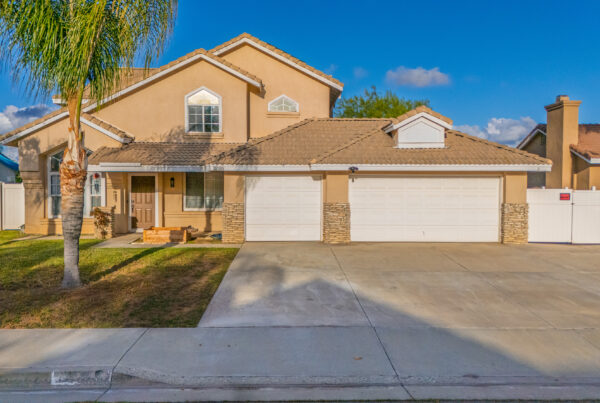#1 Commercial Property Manager in Temecula Gives Expert Advice:

The Importance of Effective Commercial Property Management
Effective commercial property management is crucial for the success of any business. It involves overseeing and maintaining commercial properties, ensuring they are in optimal condition and generating maximum returns. Without proper management, commercial properties can suffer from neglect, leading to decreased value and profitability.
One of the key aspects of effective commercial property management is ensuring that all maintenance tasks are promptly addressed. This includes regular inspections, repairs, and upgrades to keep the property in top shape. By maintaining the property’s condition, you not only attract quality tenants but also increase its market value.
Additionally, effective commercial property management involves managing tenant relationships and addressing their needs and concerns. Building strong relationships with tenants fosters trust and loyalty, leading to long-term tenancy and reduced turnover rates. It also involves effective communication and timely resolution of any issues that arise.
Furthermore, financial operations play a vital role in commercial property management. Streamlining financial processes, such as rent collection, budgeting, and accounting, ensures efficient cash flow management. This allows for better decision-making and forecasting, ultimately contributing to the success of the property.
In summary, effective commercial property management is essential for maintaining the value and profitability of commercial properties. By prioritizing maintenance, tenant relationships, and financial operations, property owners can streamline their processes and achieve long-term success.
Key Strategies for Efficient Property Maintenance
Efficient property maintenance is crucial for commercial property management. By implementing key strategies, property owners can ensure that their properties are well-maintained and in optimal condition.
Firstly, regular inspections are essential to identify any maintenance issues early on. This allows for timely repairs and prevents small problems from becoming costly and extensive. Inspections should cover all areas of the property, including structural components, plumbing, electrical systems, and landscaping.
Secondly, property owners should establish a preventative maintenance plan. This involves scheduling regular maintenance tasks, such as HVAC system servicing, roof inspections, and pest control. By proactively addressing maintenance needs, property owners can prevent major issues and prolong the lifespan of their property.
Thirdly, it is important to hire qualified and reliable maintenance staff or contractors. Skilled professionals ensure that maintenance tasks are carried out effectively and efficiently. Property owners should also maintain a network of trusted vendors for specialized services, such as plumbing or electrical repairs.
Lastly, technology can greatly assist in efficient property maintenance. Property management software can streamline maintenance requests, track work orders, and provide real-time updates on maintenance activities. By leveraging technology, property owners can enhance their maintenance processes and improve overall efficiency.
In conclusion, implementing key strategies for efficient property maintenance is vital for successful commercial property management. Regular inspections, preventative maintenance plans, hiring qualified professionals, and utilizing technology can all contribute to streamlined property maintenance and long-term success.
Maximizing Occupancy Rates through Effective Marketing
Effective marketing is essential for maximizing occupancy rates in commercial properties. By implementing the right strategies, property owners can attract quality tenants and maintain high occupancy levels.
Firstly, understanding the target market is crucial. Property owners should conduct market research to identify the needs, preferences, and demographics of potential tenants. This allows for targeted marketing campaigns that resonate with the intended audience.
Secondly, property owners should invest in professional property listings and photographs. High-quality visuals and detailed descriptions attract potential tenants and give them a clear idea of what the property has to offer. Online platforms and social media can be powerful tools for marketing commercial properties.
Thirdly, offering competitive rental rates and flexible lease terms can be a major draw for tenants. Conducting market analysis and benchmarking against similar properties ensures that rental rates are competitive and attractive to potential tenants. Additionally, offering flexible lease terms, such as shorter lease durations or customizable space configurations, can cater to varying tenant needs.
Furthermore, property owners should consider partnering with local businesses or organizations to enhance visibility and attract potential tenants. Collaborations can include co-marketing initiatives, sponsorships, or hosting events that showcase the property’s amenities and benefits.
In conclusion, effective marketing plays a crucial role in maximizing occupancy rates in commercial properties. Understanding the target market, investing in professional property listings, offering competitive rental rates, and partnering with local businesses are all strategies that can lead to increased tenant interest and occupancy levels.
Developing Strong Tenant Relationships for Long-Term Success
Developing strong tenant relationships is essential for long-term success in commercial property management. By prioritizing tenant satisfaction and fostering positive relationships, property owners can increase tenant retention and reduce turnover rates.
Firstly, effective communication is key to building strong tenant relationships. Property owners should maintain open lines of communication and promptly address any concerns or issues raised by tenants. Regularly updating tenants on property-related matters and providing clear channels for communication help establish trust and transparency.
Secondly, property owners should strive to create a positive tenant experience. This includes ensuring that the property is well-maintained, addressing maintenance requests promptly, and providing convenient amenities and services. Going above and beyond to meet tenant needs and expectations can greatly contribute to tenant satisfaction and loyalty.
Thirdly, offering incentives and rewards to long-term tenants can help strengthen tenant relationships. This can include rent discounts, lease renewal incentives, or exclusive access to certain amenities. Recognizing and rewarding tenant loyalty fosters a sense of appreciation and encourages tenants to stay for the long term.
Additionally, property owners should actively seek feedback from tenants and implement necessary improvements based on their suggestions. Regular surveys or feedback mechanisms can provide valuable insights into tenant satisfaction and help identify areas for improvement.
In summary, developing strong tenant relationships is crucial for long-term success in commercial property management. Effective communication, creating a positive tenant experience, offering incentives, and actively seeking tenant feedback are all strategies that can foster tenant loyalty and reduce turnover rates.
Streamlining Financial Operations for Commercial Properties
Streamlining financial operations is vital for successful commercial property management. By implementing efficient processes and leveraging technology, property owners can ensure accurate financial management and make informed decisions.
Firstly, utilizing property management software can greatly streamline financial operations. This includes features such as automated rent collection, online payment portals, and financial reporting. Property owners can easily track income and expenses, generate financial statements, and monitor cash flow in real-time.
Secondly, establishing clear and transparent financial policies is essential. This includes setting rent payment deadlines, late payment penalties, and security deposit procedures. Clear policies help avoid confusion and ensure consistent financial operations.
Thirdly, property owners should regularly review and analyze financial performance. This involves tracking key metrics such as occupancy rates, rental income, and expenses. By monitoring financial performance, property owners can identify areas for improvement, optimize rental rates, and make informed investment decisions.
Furthermore, property owners should maintain accurate and organized financial records. This includes keeping track of invoices, receipts, and lease agreements. Having a well-organized financial system not only ensures compliance but also facilitates efficient tax preparation and financial audits.
In conclusion, streamlining financial operations is crucial for successful commercial property management. Utilizing property management software, establishing clear financial policies, reviewing financial performance, and maintaining accurate records are all strategies that contribute to efficient financial management and overall success.
Creating a Positive Tenant Experience to Drive Long-Term Occupancy
Creating a positive tenant experience is key to driving long-term occupancy in commercial properties. By prioritizing tenant satisfaction and providing exceptional customer service, property owners can increase tenant retention and attract new tenants through positive word-of-mouth.
Firstly, maintaining the property’s condition and addressing maintenance requests promptly is essential. Regular inspections, repairs, and upgrades ensure that the property remains in optimal condition and meets tenant expectations. Property owners should also provide clear channels for reporting maintenance issues and communicate transparently about the status of repairs.
Secondly, offering convenient amenities and services can greatly enhance the tenant experience. This includes features such as ample parking, on-site security, fitness facilities, and common areas for networking or relaxation. Understanding tenant preferences and tailoring amenities to their needs can significantly contribute to tenant satisfaction and long-term occupancy.
Thirdly, property owners should prioritize tenant safety and security. Implementing robust security measures, such as surveillance systems, access control, and emergency preparedness plans, instills confidence in tenants and creates a safe environment. Regular communication about security measures and updates further enhances tenant peace of mind.
Additionally, property owners should regularly engage with tenants through community-building initiatives. This can include organizing social events, hosting workshops or seminars, or providing opportunities for tenant collaboration. Building a sense of community creates a positive and inclusive environment that tenants are more likely to stay in.
In summary, creating a positive tenant experience is instrumental in driving long-term occupancy in commercial properties. Maintaining the property’s condition, offering convenient amenities, prioritizing safety and security, and fostering a sense of community are all strategies that contribute to tenant satisfaction and retention.
Key Tactics for Successful Tenant Retention
Successful tenant retention is crucial for the long-term success of commercial property management. By implementing key tactics, property owners can increase tenant satisfaction and loyalty, reducing turnover rates and maximizing occupancy levels.
Firstly, proactive communication is essential for successful tenant retention. Property owners should regularly engage with tenants, providing updates on property-related matters and addressing any concerns promptly. Open lines of communication foster trust and demonstrate that tenants are valued.
Secondly, property owners should strive to exceed tenant expectations. This involves going above and beyond in addressing maintenance requests, providing exceptional customer service, and anticipating tenant needs. Property owners should actively seek feedback and make continuous improvements based on tenant suggestions.
Thirdly, offering incentives and rewards to long-term tenants can significantly contribute to tenant retention. This can include rent discounts, lease renewal incentives, or upgrade options. Rewarding tenant loyalty creates a sense of appreciation and encourages tenants to stay for extended periods.
Furthermore, property owners should regularly evaluate and enhance the tenant experience. This includes assessing amenities, services, and common areas to ensure they meet tenant needs and expectations. Making necessary improvements based on tenant feedback fosters tenant satisfaction and loyalty.
In conclusion, implementing key tactics for successful tenant retention is crucial for commercial property management. Proactive communication, exceeding tenant expectations, offering incentives, and continuously improving the tenant experience are all strategies that can contribute to increased tenant satisfaction and long-term occupancy.
Frictionless Commercial Property Management

#1 Commercial Property Manager in Temecula!
Connect with the premier property management team.
Looking for a full list of management services?
Looking for residential management?
Price is important, so here’s everything you need to know.
Fill out the form below and we will send you a custom proposal for services.
Download the pricing guide


